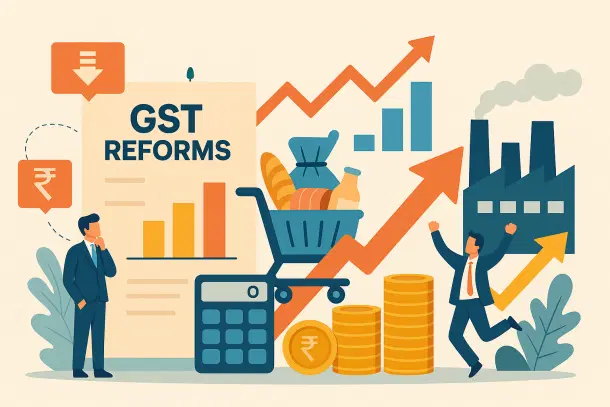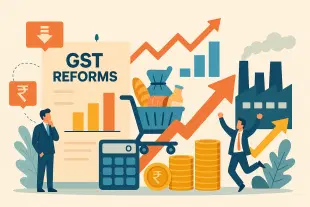Politics
Government To Track Prices Monthly To Ensure GST Rate Cuts Benefit Consumers
Swarajya Staff
Sep 10, 2025, 10:56 AM | Updated 10:56 AM IST
Save & read from anywhere!
Bookmark stories for easy access on any device or the Swarajya app.


The Union Finance Ministry has instructed its officers to closely monitor whether the benefits of the upcoming GST rate cuts are being passed on to consumers, Indian Express reported.
From 22 September, reduced tax rates will apply on a wide range of goods, and officials have been told to submit monthly reports on price movements for the next six months.
In a letter sent to senior GST commissioners, the Revenue Department directed field offices to collect commodity-wise price data from local markets and trade associations.
The reports must record brand names, retail prices before and after the new tax structure, and the extent of change observed.
The first set of findings is due by 30 September, and subsequent updates are to be submitted to the Central Board of Indirect Taxes and Customs by the 20th of every month.
The ministry has emphasised that this exercise is to be treated as a priority.
The rate reductions cover a broad list of goods.
Everyday food products such as butter, ghee, cheese, chocolates, biscuits, dry fruits, jams, ketchup, cakes and packaged drinking water will now face a 5 per cent tax instead of 12–18 per cent, while UHT milk will be exempt altogether.
Household essentials like soaps, shampoos, hair oil, talcum powder, shaving cream, toothpaste and toothbrushes are also being brought under the 5 per cent slab.
Educational supplies including pencils, sharpeners, crayons, notebooks and graph books, along with baby products, toys, medicines, thermometers, gauze and bandages are among the other categories that will be tracked.
White goods such as air conditioners, dishwashers and televisions will move to an 18 per cent rate, down from 28 per cent, and cement has also been included in the monitoring list.
The government has a history of cautioning companies against retaining the benefit of tax cuts.
When GST was rolled out in 2017, an anti-profiteering framework was introduced, and a National Anti-profiteering Authority was set up to examine complaints.
Its work has since been transferred to the Competition Commission of India.
Over its five-year term, the Authority looked into 704 cases involving alleged profiteering of around Rs 4,362 crore, most of which were reported in the first three years of GST.
Revenue Secretary Arvind Shrivastava, speaking after the 56th GST Council meeting last week, said that businesses had generally complied with past rate reductions and were expected to do the same this time.
He added that both central and state authorities would remain engaged with industry to ensure the cuts are reflected in consumer prices.
“And we do expect that since it is to the benefit of the businesses too, it is going to happen eventually,” he had said.
Please click here to add Swarajya as your preferred and trusted news source on Google.





